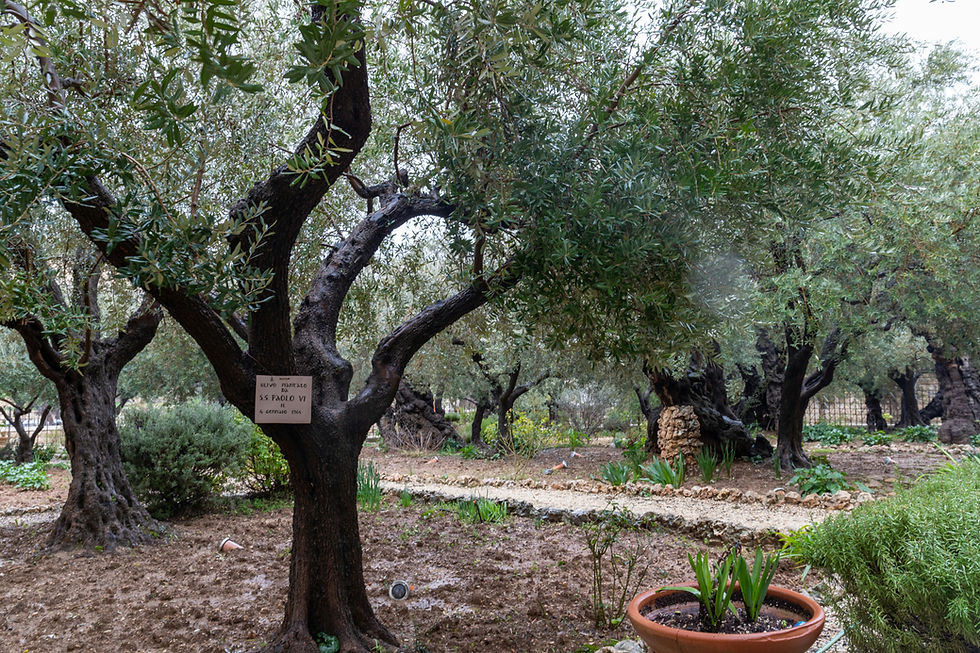Water and Spirit
- JCGR

- 4 days ago
- 3 min read

John the Baptist stood in the wilderness as the last of the Old Testament prophets and the herald of the New Covenant. His call was simple yet radical: repentance and faith. To the unregenerate heart, such a call seems distasteful—Spurgeon once remarked that many would rather repeat a thousand formal prayers than shed a single tear of true repentance. But repentance is the doorway to humility, and humility opens the way to joyful communion with God.
God Showcases His Prophet
John was no ordinary man. His clothing of camel’s hair and his leather belt immediately recalled Elijah, the great prophet whose words always came true. His very appearance was a sign: God was again speaking to His people. John’s diet of locusts and wild honey testified to his dependence on God’s provision, echoing Israel’s history of manna, honey from the rock, and divine care in the wilderness.
John was also a Nazarite, consecrated wholly to God. His life was marked by separation, purity, and devotion to holy service. He was, as Paul would later describe believers, an ambassador for God—pleading with men to be reconciled to Him (2 Corinthians 5:20). His message, sealed in his consecrated life, reminded the people that baptism was not an empty ritual but a sign of inner cleansing and an appeal to God for a clear conscience (1 Peter 3:21).
The Law and the Prophets Bow Before Christ
Yet John never pointed to himself. His message was not about his own importance but about the One who was coming. “After me comes one who is mightier than I,” he declared, confessing that he was unworthy even to untie the sandals of the Messiah.
This humility revealed John’s heart of obedience. He understood that the Law and the Prophets were not ends in themselves—they pointed forward to Christ, the Mighty One of Israel, the eternal Word who had come to fulfill them. As John later said, “He must increase, but I must decrease” (John 3:30). That same humility must shape our discipleship today. Are we seeking our own recognition, or are we seeking God’s face in prayer and obedience?
YHWH Keeps His Promise to Indwell His People
John baptized with water, but he proclaimed the greater baptism to come—the baptism of the Holy Spirit. Water could symbolize cleansing, but only the Spirit could regenerate the heart. Martyn Lloyd-Jones once wrote that there is no greater change in the universe than the change wrought by regeneration, when the sinful man dies and is made alive in Christ.
This promise was not new. The prophets had long foretold it: God would write His law on hearts (Jeremiah 31), pour out His Spirit on all flesh (Joel 2), and breathe life into His people (Ezekiel 37). In Christ, these promises came true. At Pentecost, Peter declared that the Spirit poured out was the fulfillment of what John had foretold (Acts 1:4–5; Acts 2:33).
God’s presence is no longer distant. He indwells His children, assuring them of forgiveness, empowering them for witness, and sealing them for eternal life.
Why Must We Be Born of Water and Spirit?
The answer is simple: because it is the very heart of the gospel.
Repentance is the first step of sanctification—turning from sin to God.
New birth by the Spirit is the gift of eternal life—raising us from death into light.
Together, they testify that salvation is not our doing, but God’s grace at work in us.
Living in the Spirit’s Power
For the disciple of Jesus, the call is clear. We must live in the humility of John the Baptist, pointing always to Christ. We must repent daily, remembering that baptism is not a past ritual but a present reality—the Spirit dwelling in us, shaping us, sanctifying us. And we must rejoice that God keeps His promises: the One who came to baptize with the Spirit has given us His very presence, so that we may walk as children of light.
To be born of water and Spirit is to be made new. It is to live no longer for ourselves, but for Him who died and rose again. It is to declare with every breath: “Jesus Christ is Lord.”




Comments